Publications
Explore our publications by our team of experts within the DDP network. Our publications advance knowledge and contribute to deep decarbonization from the perspectives of our in-country experts.
- NDC-Aspects
- Brief
- 2024
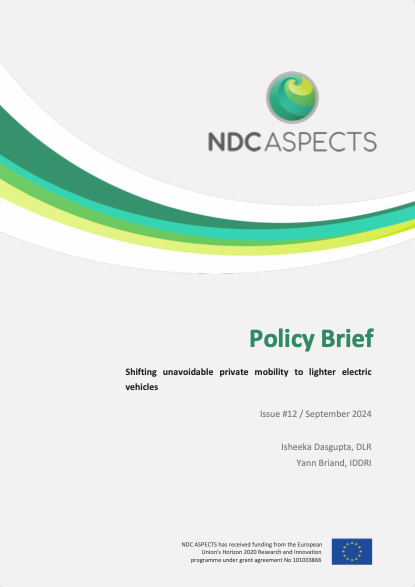
- Germany, USA
Shifting unavoidable private mobility to lighter electric vehicles
A new Policy Brief by Isheeka Dasgupta (DLR) and Yann Briand (IDDRI) proposes that, after having shifted all possible private motorized mobility towards public transportation, going lighter and smaller is one of our best bets to satisfy mobility needs.
- Isheeka Dasgupta, DLR Yann Briand, IDDRI
- NDC-Aspects
- Brief
- 2024
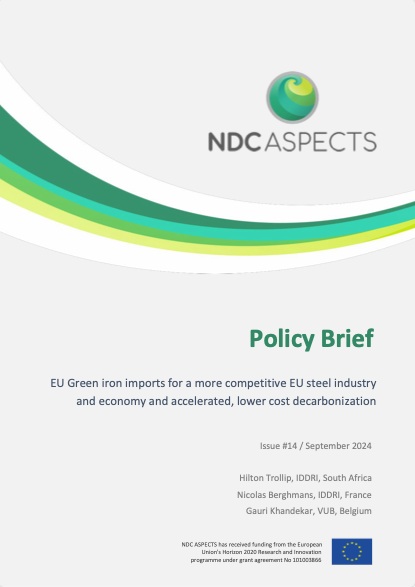
- Europe
EU green iron imports for a more competitive steel industry and accelerated decarbonisation
A new Policy Brief by Hilton Trollip (IDDRI), Nicolas Berghmans (IDDRI), and Gauri Khandekar (VUB) suggests that green iron imports rooted in comparative advantages of different geographies are technically achievable and economically sound.
- Hilton Trollip (IDDRI), Nicolas Berghmans (IDDRI), and Gauri Khandekar (VUB)
- NDC-Aspects

- Chile, Europe, India
NDC – LT-LEDS alignment guide: Aligning short-term plans with long-term ambitions
This guide was developed through close collaboration between the 2050 Pathways Platform and the Deep Decarbonization Pathways Initiative (DDP) at IDDRI. In order to help countries achieve alignment of short-term plans with the long-term systemic transformations needed to meet the goals of the Paris Climate Agreement, it provides a practical framework based on the premise that countries can fully understand how their NDCs align with the Paris Agreement only by viewing alignment through the lens of a Long-Term Low Emission Development Strategy (LT-LEDS), which can highlight transformations and actions that might be overlooked in a short-term perspective, expanding the scope of the alignment process. It also also includes four country case studies (Chile, European Union, Morocco, India) presenting real examples of alignment.
- Pérez Català, A., Waisman, H.
- DDP-Initiative
- Report
- 2024
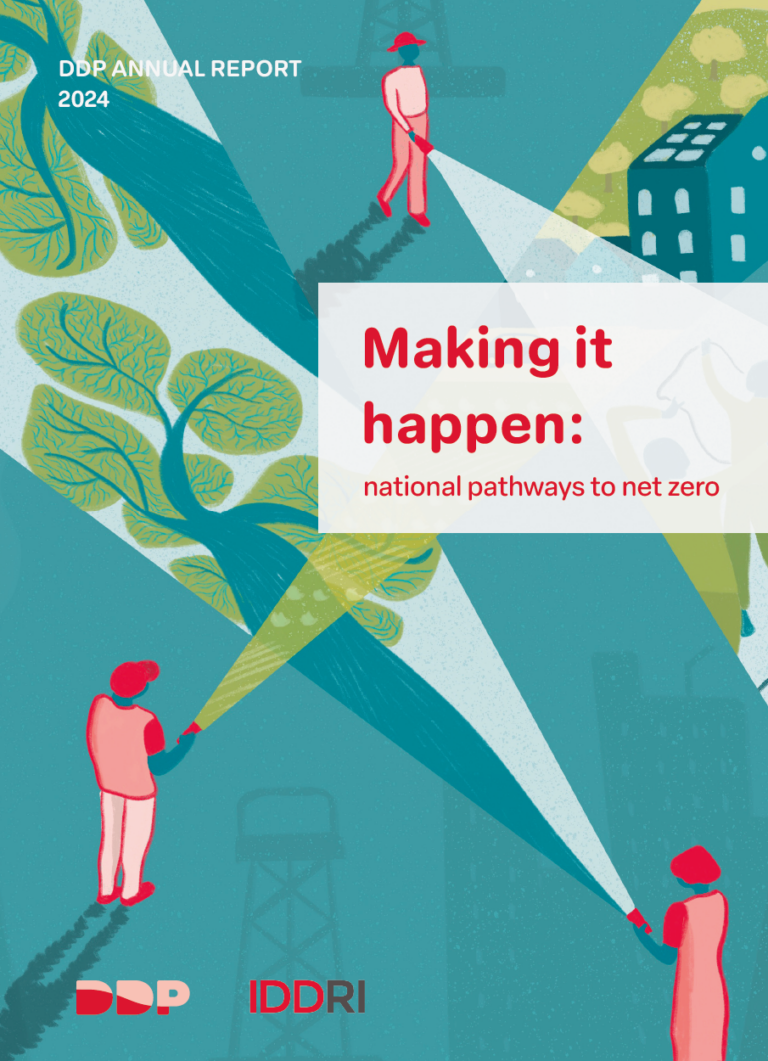
Making it happen: national pathways to net zero
This 2024 report analyzes detailed scenarios from ten countries collectively representing nearly half of the world’s population and a significant portion of global emissions: Argentina, Brazil, China, India, Indonesia, Mexico, Nigeria, Senegal, South Africa, and the United States, based on in-country perspectives from local experts.
The report’s deep decarbonization scenarios showcase a variety of pathways to achieve carbon neutrality while maintaining economic growth and improving social well-being
- DDP
- DDP-Initiative
- Article
- 2024
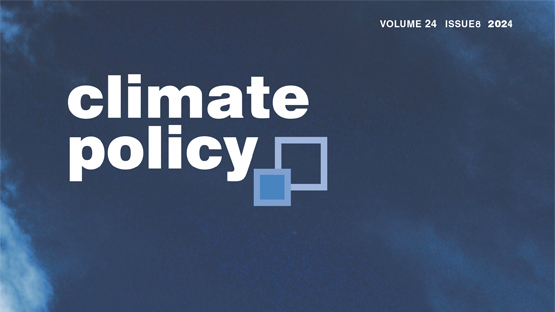
- Brazil, India, Indonesia
The AFOLU sector’s role in national decarbonization: a comparative analysis of low-GHG development pathways in Brazil, India and Indonesia
This paper analyses the role that AFOLU (agriculture, forest and other land use) plays in national deep decarbonization scenarios in Brazil, India and Indonesia between 2020 and 2050. It finds that the LULUCF (land use, land use change and forestry) subsector is important for medium-term mitigation (2020–2030) while continuing to contribute to mitigation over the long-term (2030–2050) in the three countries. Mitigation actions in LULUCF include drastically reducing deforestation (Brazil, Indonesia) and peat degradation (Indonesia), re-/afforestation (all), increased sequestration in standing forests (Brazil, Indonesia) and increasing soil carbon in agricultural lands (India).
- Johannes Svensson
- DDP-Initiative
- Report
- 2024
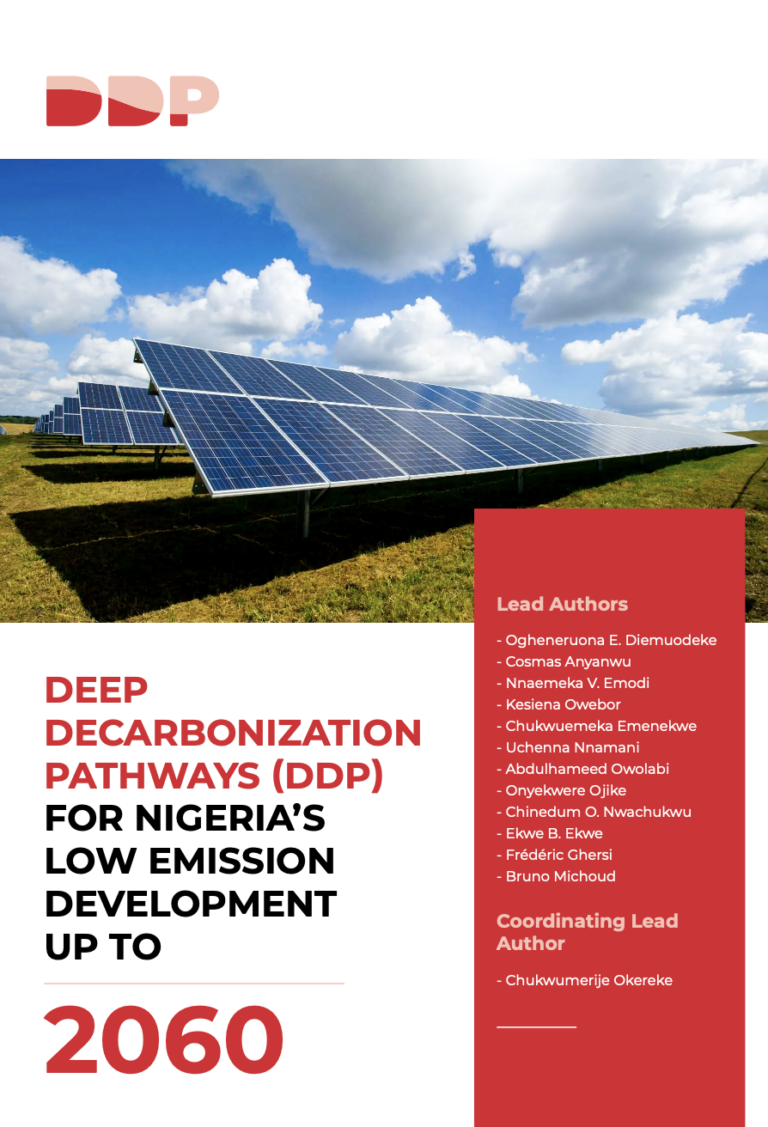
- Nigeria
Deep Decarbonization Pathways (DDP) for Nigeria’s Low Emission Development up to 2060
This report summarises the results of the Deep Decarbonisation Pathways Project in Nigeria. The DDP-Nigeria project is a national research and capacity-building project for the implementation of a Deep Decarbonisation Pathway (DDP) in Nigeria under the framework of the 2050 Facility funded by the Agence Française de Dévelopment (AFD) with the International Relation and Sustainable Development Institute (IDDRI) as the Programme Coordinator with contributions from the Centre International de Recherche sur l’Environnement et le Développement (CIRED) France. The project was done in collaboration with the Federal Ministry of Environment, Nigeria, through the Department of Climate Change (DCC) and the National Council on Climate Change (NCCC).
- Chukwumerije Okereke
- JETP
- Brief
- 2023
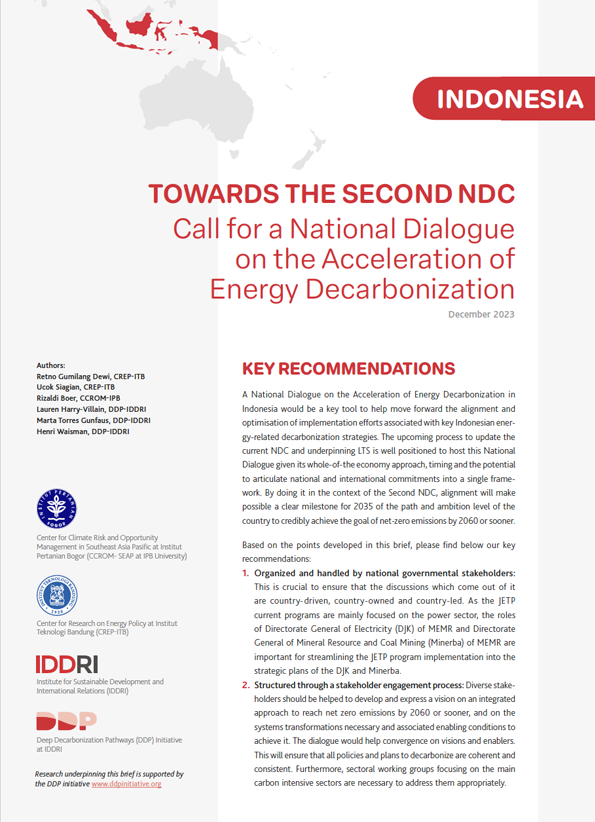
- Indonesia
Towards the Second NDC : Call for a National Dialogue on the Acceleration of Energy Decarbonization in Indonesia
Indonesia has a climate goal to reach net-zero emissions by 2060 or sooner. Recent initiatives like the JETP, which focuses on decarbonizing the on-grid power sector with USD20 billion in public and private financing, have brought light on the importance of the alignment of key Indonesian energy-related decarbonization strategies such as LTS-LCCR, NDCs and other plans, for effective implementation and funding. Indeed, lack of coherence creates the risk of not reaching emission reduction goals. A National Dialogue on the Acceleration of Energy Decarbonization in Indonesia would be a key tool to help move forward the alignment and optimisation of implementation efforts. By doing it in the context of the Second NDC, alignment will make possible a clear milestone for 2035 of the path and ambition level of the country to credibly achieve the goal of net-zero emissions by 2060 or sooner.
- DDP Initiative
- DDP-Initiative
- Report
- 2023
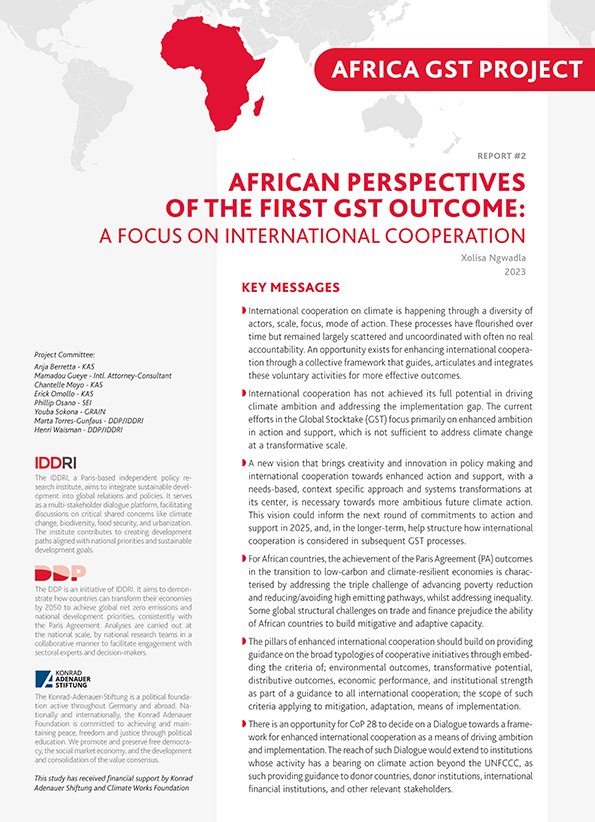
- Africa
GST Africa Report #2 – African Perspectives of the First GST Outcome: a Focus on International Cooperation
The diversity of global climate initiatives lack coordination, requiring a collective framework for effective integration of actions. Current efforts inadequately drive climate ambition, necessitating a new vision emphasizing creativity, context-specific strategies, and systemic transformations. African nations encounter obstacles meeting Paris Agreement targets. This report urges for enhanced cooperation focusing on environmental, transformative, and distributive outcomes — an effort that COP28 could guide for improved international cooperation beyond UNFCCC.
- Xolisa Ngwadla
- DDP-Initiative
- Report
- 2023
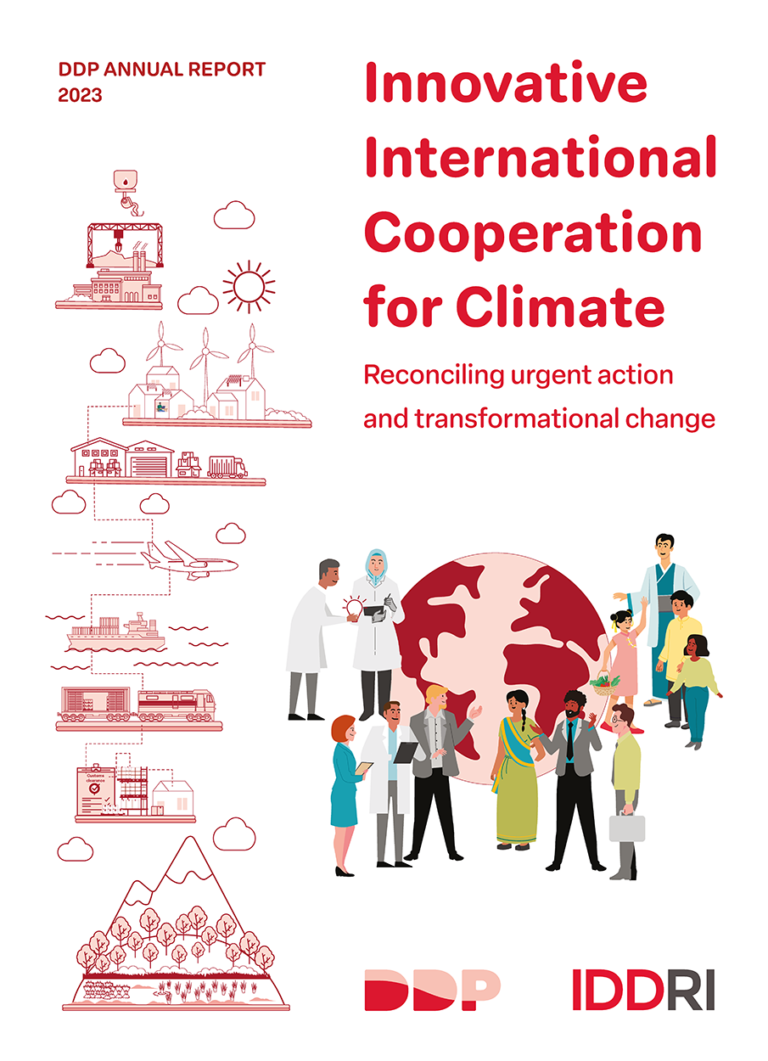
- Brazil, Colombia, France, India, Indonesia, Nigeria, Senegal, South Africa
DDP Annual Report 2023 – Innovative International Cooperation for Climate – Reconciling urgent action and transformational change
The report emphasizes the urgent need for swift and transformative action on climate change in line with the Paris Agreement’s temperature goals. Incremental changes won’t suffice; instead, a systemic transformation involving both technological and organizational shifts across all sectors and countries is essential.
Download the report:
Chapters- DDP